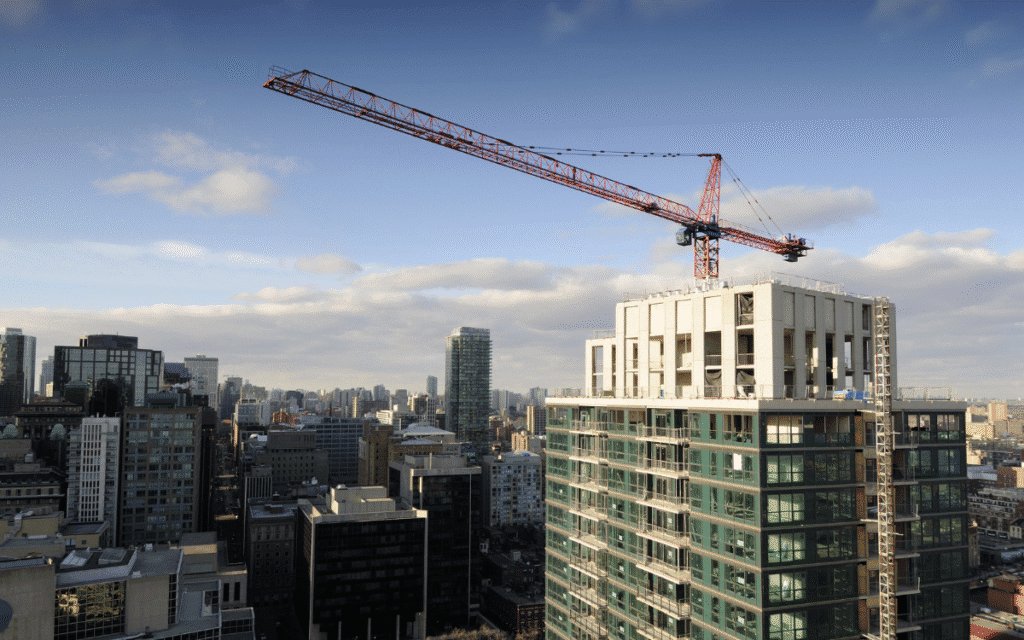New year, new home? Real estate continues to be a hot topic in Toronto, especially if you’re thinking of buying or selling. If you’re eager to see what’s on the horizon for housing, here’s what you can expect in 2022.
New pandemic regulations
Though restrictions are in place again, as essential services, real estate brokerages can continue to operate with certain limitations. View the full list of new health measures here.
- Open houses: Open houses are not permitted. In-person real estate showings can happen by appointment only and must follow all public health rules and guidelines.
- Face covering/masks: Anyone entering a business or real estate showing must wear a face mask/covering at all times.
- Cleaning/disinfecting: Equipment, washrooms and other common areas must be cleaned regularly and disinfected.
Prices expected to rise
Don’t count on the market cooling dramatically in 2022. Due to low supply and historically low interest rates, home prices are expected to continue rising—though not as drastically as in 2021, when the average selling price jumped 19% from the previous year. The Canadian Real Estate Association (CREA) predicts this average will rise 5.6% in 2022.
“Some of the factors that will likely affect the driving price increases this year will be leftover demand from 2021 – lack of inventory; the supply is simply not there, buyers who did not win the many bidding wars are still looking, and similarly buyers will be rushing to purchase before their mortgage rates expire. Obviously these are not exhaustive lists; there are many other factors to consider such as increasing inflation, a dramatic increase in the use of variable rates (which gives the market a much higher exposure to short-term rate changes), public sentiment, a $325 billion government deficit…etc.
Are there factors that could actually see a balance in prices? 2021 saw a 30 year high of new housing Ontario (89 thousand new units), rising interest rates would reduce the buying power and could mean lower prices (we’ve seen this in the past). 2021 saw the lowest population increase in 30 years (74% lower than prepandemic) and less people means less demand.” – Tyler DeClute, Sales Representative
Uncertainty
While there’s no anticipated price drop for buyers, some experts believe that if the Bank of Canada begins to raise the interest rate in April as has been hinted, there could be an effect on the market. However other factors, including the state of the pandemic and employment, mean uncertainty at this point.
“Government influence is an unknown factor that could have a huge impact on the market. I’m not sure what will come of the Liberals housing plan but we can expect them to do something. Housing affordability is at it’s worst level in 30 years. A high earner needs 26 years to save for a downpayment in Toronto. Some potential measures the government could enact are an anti-flipping tax to prevent the purchase and sale of a property for at least 12 months, temporary ban on foreign ownership, increase minimum downpayments on investment properties from 20% to 35% (investors accounted for about 25% of all real estate transactions in 2021), tax credits and lowering CMHC premiums could be others.” – Tyler DeClute, Sales Representative
Increasing rent
Though the pandemic did offer a bit of relief in the rental market, especially in Toronto’s downtown core, rent has returned to pre-pandemic rates with the average Toronto one-bedroom costing $2,040 per month—and prices will continue to rise. The Ontario Government also froze rental increases until December 2021, meaning landlords can raise rent by 1.2% in 2022.
Suburban sales
One benefit of the pandemic? It seems remote work is here to stay in some capacity. Less commuting makes moving to the suburbs more attractive than ever, and sales in suburban markets will only continue to increase. In fact, GTA home sales reached record prices at the end of last year.
Thinking of buying or selling this year? Contact us today, we can help.



